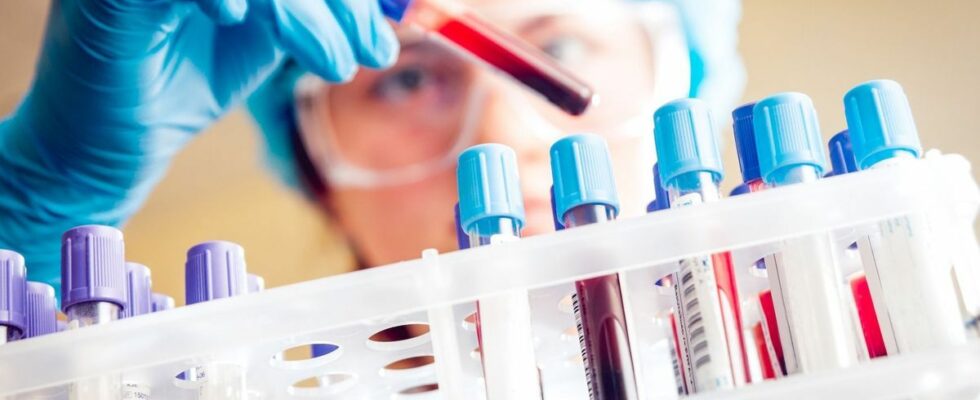Published on
Updated
Reading 2 min.
English researchers identified 618 proteins linked to 19 different types of cancer, including 107 proteins in a group of people whose blood was taken at least seven years before diagnosis. Hope for ultra-early detection and therefore better treatment of these diseases.
Two studies funded by Cancer Research UK and carried out by Oxford Population Health have discovered proteins in the blood that could help in the ultra-early detection of cancer more than 7 years before it is diagnosed. The team discovered that these proteins could be involved in the early stages of cancer, at a stage where it could be prevented.
They believe that some of these proteins could be used to detect cancer much earlier than is currently possible. In the future, this would make it possible to treat the disease at a much earlier stage, or even prevent it.
Proteomics poised to revolutionize screening
Cancer Research UK funds studies to look for early signs of cancer as part of its long-term strategy to prevent cancer through research. As part of these studies, the Oxford Population Health team used a powerful technique called proteomics. Proteomics allows scientists to analyze large numbers of proteins in tissue samples at one time, see how they interact with each other, and detect any significant differences in proteins between different tissue samples.
- In the first study, scientists analyzed blood samples from the UK Biobank taken from more than 44,000 people, including more than 4,900 people who were subsequently diagnosed with cancer. Thanks to the proteomics, the team analyzed a set of 1,463 proteins from a single blood sample from each person. They compared proteins from people who had and had not been diagnosed with cancer to look for important differences and find out which ones were linked to cancer risk. The scientists also identified 182 proteins that differed in the blood three years before the cancer diagnosis.
- In the second study, scientists examined genetic data from more than 300,000 cancer cases to comprehensively determine which blood proteins were involved in cancer development and could be targeted by new treatments. Scientists have discovered 40 proteins in the blood that influence the risk of contracting 9 different types of cancer. Although changing these proteins can increase or decrease cancer risks, scientists have also found that in some cases it can lead to unintended side effects (like high blood pressure).
Towards ultra-early diagnosis of cancers?
The researchers admit that further research will be needed to discover the exact role of these proteins in the development of cancer, to identify which ones are most interesting to test, and which tests could be developed for practical application and which drugs could target these proteins.
According to Professor Ruth Travis, senior molecular epidemiologist at Oxford Population Health and lead author of both studies: “To be able to prevent cancer, we need to understand the factors behind its early stages. These studies are important because they provide many new clues about the causes and biology of several cancers, including information about what happens years before a cancer appears, before it is diagnosed“.

